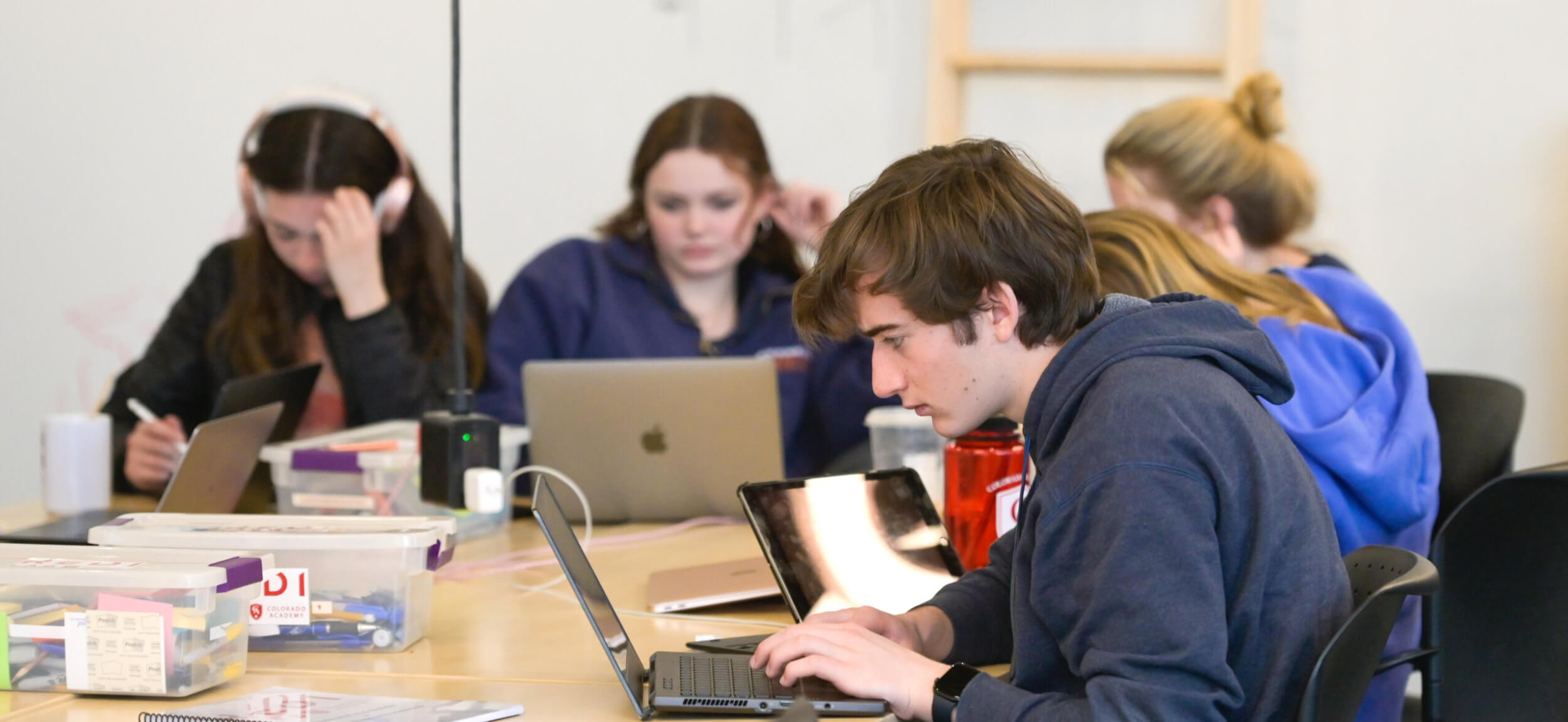One of my favorite experiences at CA has been serving as an Upper School advisor. When a student joins the Upper School, they are assigned an advisory for their entire high school experience. As an advisory group, students get to know one another on a deeper level, and every student has a teacher guiding and supporting them as they make academic decisions throughout their high school years. Before becoming the Arts Director, I had the honor of watching three different advisories graduate on the lawn of Welborn House.
This winter, I became an advisor again, to help a colleague who was out on paternity leave. I was immediately reminded of how much fun it is to talk to students about their next steps in life. As a young educator, when students and I would have brainstorming conversations about their possible futures, I’d say things like, “What are your passions?” “Follow your passions and you can’t go wrong!” “What brings you the most joy?” After hundreds of conversations with teenagers about their futures, I quickly learned that there is another perspective that can be more helpful, and that is, “What do you enjoy struggling through?”
This question tends to get a confused look at first. Asking more questions can help: What activity or work brings out the most tenacity in you? What are you doing when you just do not want to give up, even when it gets hard? What problems are rewarding for you to solve? What is something you do that is really hard, but you can’t imagine not having in your life? What work do you make lots of mistakes in, but keep at it? These questions lead to the most interesting brainstorming sessions. I think it helps young people, and all of us for that matter, to remember that life isn’t easy; it is full of struggle. The key is to spend some time thinking about which puzzles in this complicated world we live in you enjoy solving. Because then, you might be onto something.
For me, teaching is hard; the creative process is, too. So, of course, I have made a career of teaching and being an artist. Not to mention, teenagers are complicated beings—another reason I’m so drawn to working with them. They are no longer children, so you cannot treat them as such. They are about to head out into the world, yet sometimes they need to be convinced and empowered by the idea that they are absolutely ready to do so. It is that dichotomy that is so hard to figure out, and it is what has kept me doing it for so long.
What do you enjoy struggling through?
